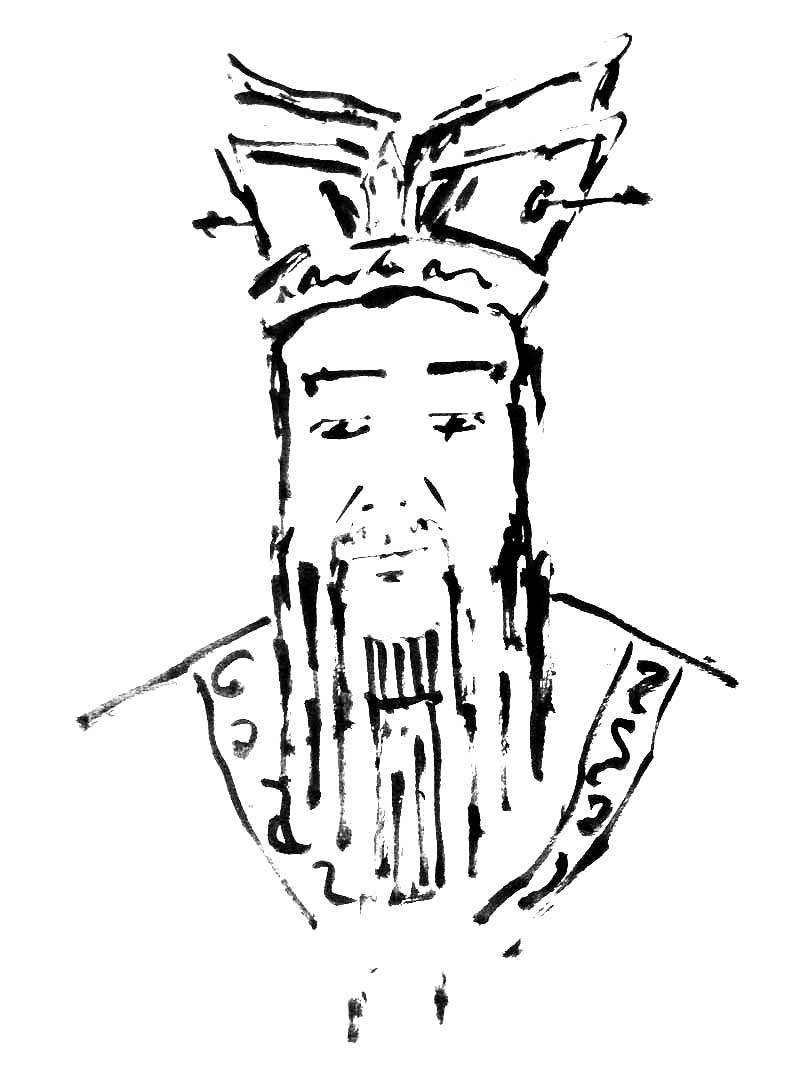“Circa 500 – more exactly from 551 to 479 before Christ – a philosopher named Confucius lived in Qufu, a city in China. His name is actually Kong Qiu. He worked as a civil servant and lived for a long time in political exile. He tried to restore the mythological-religious value system of the Chinese feudal empire and founded together with his disciples the …”
 It was the fifth hour of history, and the history teacher righteously endeavoured to interest his pupils in the content. But at this point of the lecture, Alexander shut-off his head, and he began to count the white dots on the dress of the girl beside him. As a result, he will never learn what this philosopher founded – that is, a person that loved wisdom. And yet, a saying of Confucius – as his Chinese name is commonly known today – would have probably been useful for him:
It was the fifth hour of history, and the history teacher righteously endeavoured to interest his pupils in the content. But at this point of the lecture, Alexander shut-off his head, and he began to count the white dots on the dress of the girl beside him. As a result, he will never learn what this philosopher founded – that is, a person that loved wisdom. And yet, a saying of Confucius – as his Chinese name is commonly known today – would have probably been useful for him:
Tell me, and I forget;
Show me, and I remember;
Let me do something, and I retain it.
Confucius had known that people need to use their senses to learn, and that each person uses their senses differently. For each person, different senses have differing efficacy for remembering the learnt content. Sight, hearing and touch are, first and foremost, for learning important.
Modern psychology – that is the science that is engaged with everything that takes place in people’s heads – distinguishes learners by their preferred senses that are used. Thus, many learning guides (advisors) place great value on finding out which learning type someone is. Not without good reason is it helpful to recognize the personal learning style and consequently to prepare the learning material to suit in order to learn successfully. One does not necessarily need a psychological test to determine which learning type they are, it often suffices to observe oneself once when learning and to think about their learning habits.
Those who prefer learning from their sense of sight need to read texts, to see graphics, images, and illustrations to understand their learning material. Such people learn best with table overviews, summaries, and learning posters. They also need a pleasant learning environment to feel comfortable while learning. (See the learning tip, “A pupil’s afternoon”.)
Those who prefer learning from their sense of hearing learn best when they can hear their learning material. These people can listen to recordings of themselves, read texts aloud or listen to others reading texts aloud. Such people often speak in monologues and are very sensitive to noises in their learning environment.
Some people learn best by doing. That is, by trying something, role-playing, demonstrating, explaining, or by working together with others. Typical for these people are many gestures and also the internal drive for movement.
Finally, speaking is also important for learning. It lies somewhere between the senses listening and doing. By speaking, we listen to ourselves and move our lips at the same time.
However, most people do not have a clear preference for one learning style. Nearly all people are combined types. Confucius had discovered exactly that: a combination of the different senses is the most effective learning method, independent of which type one is. In conclusion, we should all use our senses as much as possible.
Research in scientific psychology is increasing the learning success rate when we allow our senses to effectively work together. It is most easily shown in a table:
|
Percent retained (%)
|
|
| Listening |
20
|
| Seeing |
30
|
| Listening + seeing |
50
|
| Listening + seeing + speaking |
70
|
| Listening + seeing + speaking + doing |
90
|
Naturally, these numbers are only average values and are dependent upon the learning type that one most likely belongs to. It only proves what Confucius already said over 2500 years ago, and what Alexander in his history class most probably heard if he didn’t daydream.
Extra tip: Therefore, a good way to learn something is to explain something to another person. Why do you think your teachers know so much? 😉
